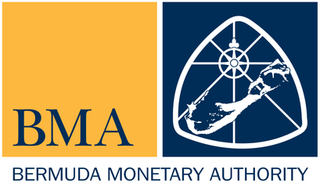
A security is a tradable financial asset. The term commonly refers to any form of financial instrument, but its legal definition varies by jurisdiction. In some countries and languages people commonly use the term "security" to refer to any form of financial instrument, even though the underlying legal and regulatory regime may not have such a broad definition. In some jurisdictions the term specifically excludes financial instruments other than equities and fixed income instruments. In some jurisdictions it includes some instruments that are close to equities and fixed income, e.g., equity warrants.

A stockbroker is an individual or company that buys and sells stocks and other investments for a financial market participant in return for a commission, markup, or fee. In most countries they are regulated as a broker or broker-dealer and may need to hold a relevant license and may be a member of a stock exchange. They generally act as a financial advisor and investment manager. In this case they may also be licensed as a financial adviser such as a registered investment adviser.
In financial services, a broker-dealer is a natural person, company or other organization that engages in the business of trading securities for its own account or on behalf of its customers. Broker-dealers are at the heart of the securities and derivatives trading process.
A binary option is a financial exotic option in which the payoff is either some fixed monetary amount or nothing at all. The two main types of binary options are the cash-or-nothing binary option and the asset-or-nothing binary option. The former pays some fixed amount of cash if the option expires in-the-money while the latter pays the value of the underlying security. They are also called all-or-nothing options, digital options, and fixed return options (FROs).

The Bermuda Monetary Authority is the integrated regulator of the financial services sector in Bermuda. It is not a central bank, and does not provide lender of last resort facilities.

The Securities Exchange Act of 1934 is a law governing the secondary trading of securities in the United States of America. A landmark of wide-ranging legislation, the Act of '34 and related statutes form the basis of regulation of the financial markets and their participants in the United States. The 1934 Act also established the Securities and Exchange Commission (SEC), the agency primarily responsible for enforcement of United States federal securities law.
A mortgage broker acts as an intermediary who brokers mortgage loans on behalf of individuals or businesses. Traditionally, banks and other lending institutions have sold their own products. As markets for mortgages have become more competitive, however, the role of the mortgage broker has become more popular. In many developed mortgage markets today,, mortgage brokers are the largest sellers of mortgage products for lenders. Mortgage brokers exist to find a bank or a direct lender that will be willing to make a specific loan an individual is seeking. Mortgage brokers in Canada are paid by the lender and do not charge fees for good credit applications. In the US, many mortgage brokers are regulated by their state and by the CFPB to assure compliance with banking and finance laws in the jurisdiction of the consumer. The extent of the regulation depends on the jurisdiction.
An insurance broker is an intermediary who sells, solicits, or negotiates insurance on behalf of a client for compensation. An insurance broker is distinct from an insurance agent in that a broker typically acts on behalf of a client by negotiating with multiple insurers, while an agent represents one or more specific insurers under a contract.

A financial adviser or financial advisor is a professional who provides financial services to clients based on their financial situation. In many countries, financial advisors must complete specific training and be registered with a regulatory body in order to provide advice.
The Financial Industry Regulatory Authority (FINRA) is a private American corporation that acts as a self-regulatory organization (SRO) that regulates member brokerage firms and exchange markets. FINRA is the successor to the National Association of Securities Dealers, Inc. (NASD) as well as the member regulation, enforcement, and arbitration operations of the New York Stock Exchange. The U.S. government agency that acts as the ultimate regulator of the U.S. securities industry, including FINRA, is the U.S. Securities and Exchange Commission (SEC).
The Republika Srpska Securities Commission is a financial services regulator in Republika Srpska, Bosnia and Herzegovina. It is based in the city of Banja Luka.
A securities commission, securities regulator or capital market authority is a government department or agency responsible for financial regulation of securities products within a particular country. Its powers and responsibilities vary greatly from country to country, but generally cover the setting of rules as well as enforcing them for financial intermediaries and stock exchanges.

The Cyprus Securities and Exchange Commission, better known as CySEC, is the financial regulatory agency of Cyprus. As an EU member state, CySEC's financial regulations and operations comply with the European MiFID financial harmonization law.
Financial regulation in Australia is extensive and detailed.
Foreign exchange regulation is a form of financial regulation specifically aimed at the Forex market that is decentralized and operates with no central exchange or clearing house. Due to its decentralized and global nature, the foreign exchange market has been more prone to foreign exchange fraud and has been less regulated than other financial markets.

The Capital Markets Authority of Kenya, also known as CMA, is a government financial regulatory entity responsible for supervising, licensing and monitoring the activities of the capital markets within the Republic of Kenya, market intermediaries, including the stock exchange, and the central depository and settlement system and all other persons licensed under the Capital Markets Act of Kenya.
ADS Securities LLC is a private financial services firm headquartered in Abu Dhabi that offers online trading, investment, wealth management and asset management services for institutional, private and retail clients. It provides foreign investment markets analysis on CNBC, Bloomberg, and CNBC Arabiya.

The California Department of Financial Protection and Innovation regulates a variety of financial services, businesses, products, and professionals. The department operates under the California Business, Consumer Services and Housing Agency.
Equity crowdfunding is the online offering of private company securities to a group of people for investment and therefore it is a part of the capital markets. Because equity crowdfunding involves investment into a commercial enterprise, it is often subject to securities and financial regulation. Equity crowdfunding is also referred to as crowdinvesting, investment crowdfunding, or crowd equity.
Financial regulation in India is governed by a number of regulatory bodies. Financial regulation is a form of regulation or supervision, which subjects financial institutions to certain requirements, restrictions and guidelines, aiming to maintain the stability and integrity of the financial system. This may be handled by either a government or non-government organization. Financial regulation has also influenced the structure of banking sectors by increasing the variety of financial products available. Financial regulation forms one of three legal categories which constitutes the content of financial law, the other two being market practices and case law.








